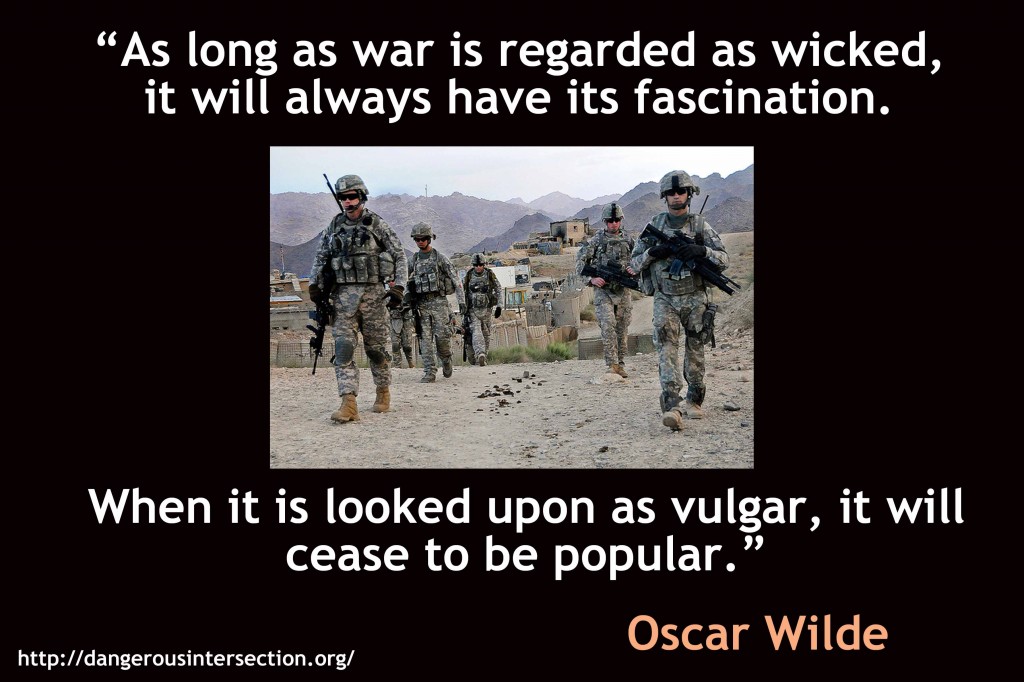As Christopher Hedges has written, war is exciting and carries its own meaning, regardless of the flimsy excuses that politicians bandy about.
The enduring attraction of war is this: Even with its destruction and carnage it can give us what we long for in life. It can give us purpose, meaning, a reason for living. Only when we are in the midst of conflict does the shallowness and vapidness of much of our lives become apparent. Trivia dominates our conversations and increasingly our airwaves. And war is an enticing elixir. It gives us resolve, a cause. It allows us to be noble. And those who have the least meaning in their lives, the impoverished refugees in Gaza, the disenfranchised North African immigrants in France, even the legions of young who live in the splendid indolence and safety of the industrialized world, are all susceptible to war’s appeal.
I've previously written about the power of
how we frame war; how is it that human slaughter can be seen as glamorous? Oscar Wilde also touches on this issue of how we frame war:

As long as we uncritically bandy about
horribly vague phrases like "Support the Troops," we will not expose America's needless wars for what they are.
 Glenn Greenwald , Greg Mitchell, Truthdig.com and Amy Goodman have been among the relatively few media sources giving serious coverage to Bradley Manning (and to Wikileaks).
What kinds of scandals has Bradley Manning revealed? Here are more than a few.
Glenn Greenwald , Greg Mitchell, Truthdig.com and Amy Goodman have been among the relatively few media sources giving serious coverage to Bradley Manning (and to Wikileaks).
What kinds of scandals has Bradley Manning revealed? Here are more than a few. 


